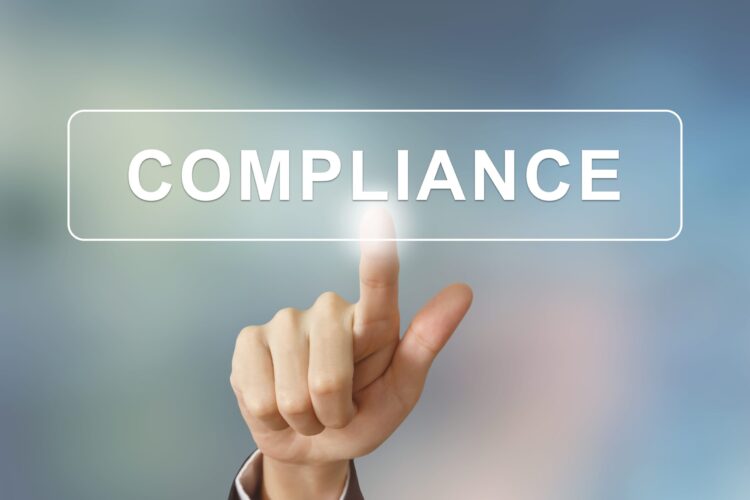The Defining Compliance

In the ever-evolving world of business, the term “compliance” has become increasingly prevalent and indispensable. As companies navigate complex regulatory frameworks, ethical considerations, and global standards, compliance has emerged as a guiding principle for organizational success. This article delves into the multifaceted realm of compliance, exploring its nuances, challenges, and the pivotal role it plays in sustaining a trustworthy and sustainable business environment.
Table of Contents
ToggleDefining Compliance:
At its core, compliance refers to the act of adhering to established rules, regulations, and standards. These can be imposed by governmental bodies, industry associations, or even internal policies set by the organization itself. Compliance is not a one-size-fits-all concept; it varies across industries, geographies, and organizational structures. While regulatory compliance is a common focal point, encompassing laws and regulations specific to a particular sector, compliance also extends to ethical, environmental, and social considerations.
Regulatory Compliance:
One of the primary facets of compliance is regulatory adherence. Companies must operate within the bounds of laws and regulations that govern their industry. Failure to comply with these legal frameworks can result in severe consequences, including fines, legal actions, and damage to reputation. Examples of regulatory compliance include financial reporting standards, data protection laws, and industry-specific regulations such as those governing pharmaceuticals or telecommunications.
Ethical Compliance:
Beyond legal obligations, ethical compliance has gained prominence in the corporate landscape. Companies are increasingly expected to uphold high ethical standards, demonstrating integrity, transparency, and a commitment to social responsibility. Ethical compliance extends to fair business practices, anti-corruption measures, and the responsible treatment of employees, suppliers, and customers. In an era where consumers prioritize ethical considerations, businesses that champion ethical compliance often enjoy enhanced brand reputation and customer loyalty.
Environmental and Social Compliance:
The global shift towards sustainability has elevated the importance of environmental and social compliance. Organizations are now scrutinized not only for their financial performance but also for their impact on the environment and society. Environmental compliance involves meeting regulatory standards related to waste management, emissions, and resource conservation. Social compliance encompasses factors such as labor practices, human rights, and community engagement. Companies are recognizing the significance of aligning their operations with sustainable practices to meet the expectations of environmentally and socially conscious stakeholders.
The Compliance Framework:
Effectively managing compliance requires a structured framework that integrates policies, processes, and monitoring mechanisms. A robust compliance framework typically involves:
- Policy Development: Creating comprehensive policies that outline the organization’s commitment to compliance. These policies should encompass legal requirements, ethical considerations, and environmental and social responsibilities.
- Training and Awareness: Ensuring that employees at all levels are well-versed in compliance requirements. Regular training programs can help foster a culture of compliance within the organization.
- Monitoring and Auditing: Implementing systems for ongoing monitoring and periodic audits to assess compliance levels. These mechanisms help identify potential issues before they escalate, allowing for timely corrective actions.
- Reporting and Documentation: Establishing clear reporting mechanisms for compliance violations or concerns. Maintaining thorough documentation is crucial for demonstrating due diligence in the event of audits or investigations.
Challenges in Compliance:
While the benefits of compliance are evident, organizations often face numerous challenges in implementing and maintaining effective compliance programs. These challenges include:
- Complex Regulatory Landscape: The sheer volume and complexity of regulations can overwhelm organizations, especially those operating in multiple jurisdictions. Staying abreast of regulatory changes and ensuring compliance across the board can be a formidable task.
- Resource Constraints: Smaller businesses or those in emerging markets may struggle with limited resources dedicated to compliance. This can hinder their ability to invest in sophisticated compliance management systems or hire specialized personnel.
- Technological Advancements: The rapid pace of technological advancements introduces new challenges in data protection and cybersecurity. Ensuring compliance with evolving digital regulations requires continuous adaptation and investment in advanced technologies.
- Cultural Resistance: Implementing a culture of compliance within an organization may face resistance, especially if employees perceive compliance measures as restrictive or burdensome. Nurturing a positive compliance culture requires effective communication and leadership.
The Role of Technology in Compliance:
As the business landscape becomes increasingly digitized, technology plays a pivotal role in streamlining and enhancing compliance efforts. Advanced software solutions, such as compliance management systems and data analytics tools, enable organizations to automate compliance processes, monitor regulatory changes, and conduct real-time risk assessments. Artificial intelligence (AI) and machine learning algorithms can analyze vast amounts of data, helping organizations identify patterns and potential compliance issues.
Furthermore, blockchain technology is gaining traction in ensuring transparency and traceability in supply chains, a critical component of environmental and social compliance. Smart contracts, powered by blockchain, can automate and enforce compliance requirements, reducing the risk of human error or intentional non-compliance.
The Future of Compliance:
As the global business landscape continues to evolve, the future of compliance will likely be shaped by several key trends:
- Integrated Compliance Platforms: Organizations will increasingly adopt integrated compliance platforms that consolidate various compliance functions, streamlining processes and providing a holistic view of compliance across different domains.
- Emphasis on ESG (Environmental, Social, and Governance) Metrics: ESG metrics will become central to assessing a company’s overall performance and attracting investment. Investors, consumers, and regulatory bodies will place greater importance on a company’s commitment to sustainable and responsible business practices.
- Global Standardization: Efforts to standardize compliance requirements across borders will intensify, making it easier for multinational corporations to navigate complex regulatory landscapes. International collaboration and the development of common compliance frameworks will be crucial in achieving this goal.
- Continuous Monitoring and Adaptive Compliance: Real-time monitoring and adaptive compliance strategies will become the norm. Organizations will leverage technology to dynamically adjust their compliance measures in response to changing regulatory environments and emerging risks.
Conclusion:
In conclusion, compliance has evolved from a mere regulatory obligation to a fundamental aspect of corporate governance and responsible business conduct. Embracing compliance not only safeguards organizations from legal and reputational risks but also positions them as ethical and socially responsible entities. As the business landscape continues to transform, the proactive pursuit of compliance, coupled with innovative technologies, will be paramount in ensuring sustained success and resilience in an ever-changing world.
It seems like there might be a slight typo in your request. Did you mean to ask for Frequently Asked Questions (FAQs) on “compliance”? If so, please clarify, and I’d be happy to provide a set of FAQs related to compliance.





